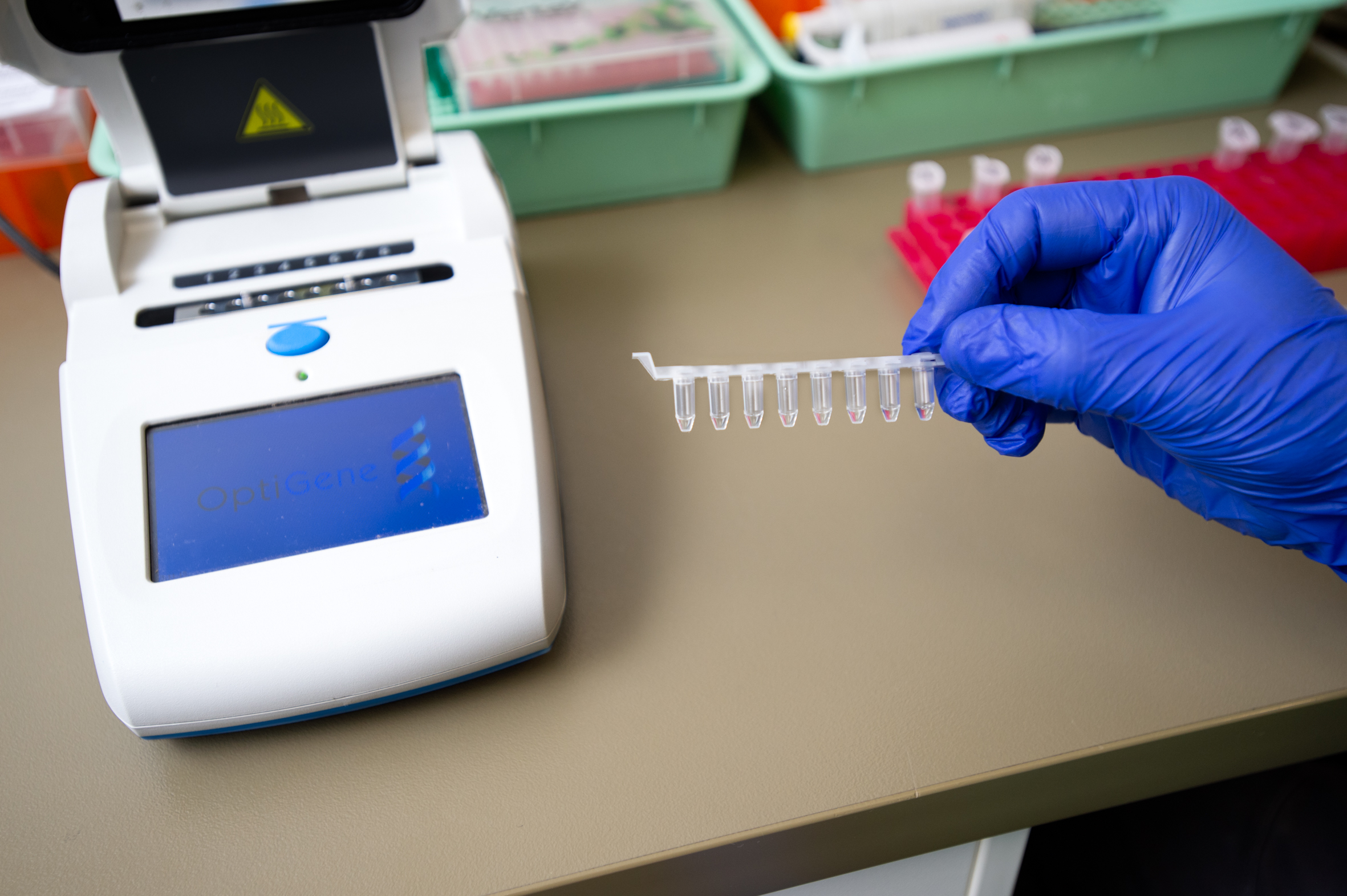 A new rapid DNA test to detect chlamydia infection in koalas developed by University of Queensland and QUT researchers is now being manufactured, and kits to run about 4000 tests will be made available free to wildlife hospitals and rehabilitation centres caring for koalas after the recent bushfires.
A new rapid DNA test to detect chlamydia infection in koalas developed by University of Queensland and QUT researchers is now being manufactured, and kits to run about 4000 tests will be made available free to wildlife hospitals and rehabilitation centres caring for koalas after the recent bushfires.
Among those to receive the free tests will be South Australian wildlife ecologists overseeing the care of Kangaroo Island koalas relocated to the mainland. The Kangaroo Island koala population is the only one identified as free of chlamydia infection, which can cause blindness, serious urinary tract infections and infertility and, if not treated, can be fatal.
- The new koala chlamydia test was developed and validated by UQ PhD student Lyndal Hulse, with supervisors QUT Immunology Professor Ken Beagley and UQ Zoologist Associate Professor Stephen Johnston, and trialled at the Currumbin Wildlife Hospital on the Gold Coast.
- It uses innovative LAMP (loop mediated isothermal amplification) technology and targets a specific sequence of DNA in the chlamydia bacteria.
- From eye and urogenital swabs, the most common chlamydia strain affecting koalas, Chlamydia pecorum, can be detected.
- The LAMP test results are available on-the-spot within 30 minutes. This compares to up to several days for samples sent away for standard laboratory PCR (polymerase chain reaction) diagnostic testing.
- Rapid turnaround means no delay in animal welfare management decisions.
The LAMP test is run on a compact and portable, battery-powered OptiGene Genie machine, distributed in Australia by GeneWorks.
GeneWorks and OptiGene worked with the researchers on simplified testing protocols to produce a koala chlamydia testing kit that wildlife veterinarians and koala ecologists and carers can use outside a laboratory at the point-of-care and get rapid results.
GeneWorks director Arran Greenhalgh said the work was fast-tracked in response to the bushfires, which have devastated wildlife populations and placed pressure on rescue and rehabilitation services. Hundreds of injured koalas around the country are being cared for and others have been relocated because of the destruction of their habitat.
“Organisations are doing fantastic work and many of the wildlife hospitals and koala rehabilitation centres are at maximum capacity, so we understand how important fast turnaround health testing is for them,” Mr Greenhalgh said.
“Chlamydia is a very infectious disease and koalas often show no clinical signs of infection.
“We now have available the free kits of the reagents and consumables needed to run the LAMP test and quickly detect chlamydia infection. These kits will be provided free to any organisations providing support to koalas. In total we will provide about 4000 tests.
“GeneWorks is also able to help organisations with access to equipment and familiarisation and training if needed.”
Since the researchers devised the test, Currumbin Wildlife Hospital, RSPCA Wildlife Wacol, Moggill Koala Rehabilitation Centre, Friends of the Koala and the South Australian government managing the koalas on Kangaroo Island have acquired Genie machines for LAMP testing.

Ms Hulse said it was rewarding for the research team to see the work transitioning from the laboratory and being rolled out to the community.
“We believe the test kit will be a great help for organisations,” she said. “If a koala tests positive for chlamydia and needs treatment it can be tested again after treatment to make sure it is clear of disease, and also before being released.
“The test will also be particularly useful in South Australia for managing the relocated Kangaroo Island koala population. As these are the only ones that have remained chlamydia-free, it will be important to keep a check on them. The kit will enable testing to be done simply and quickly.”
Wildlife organisations interested in receiving test kits can contact GeneWorks on +61 3 9013 0032 or email customerservice@geneworks.com.au.



